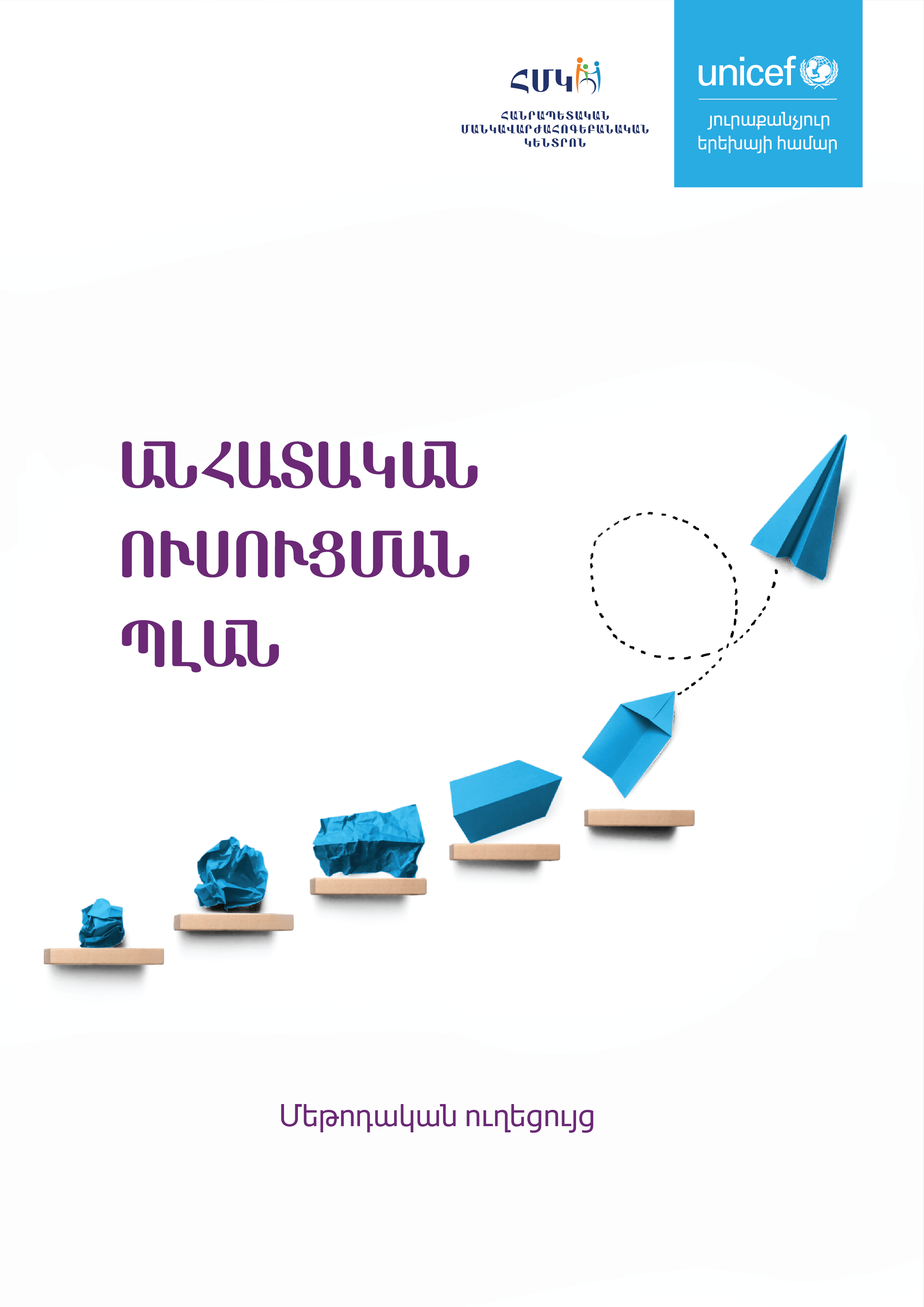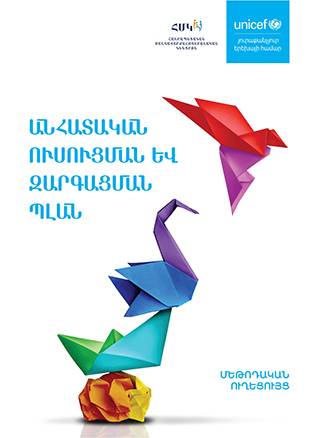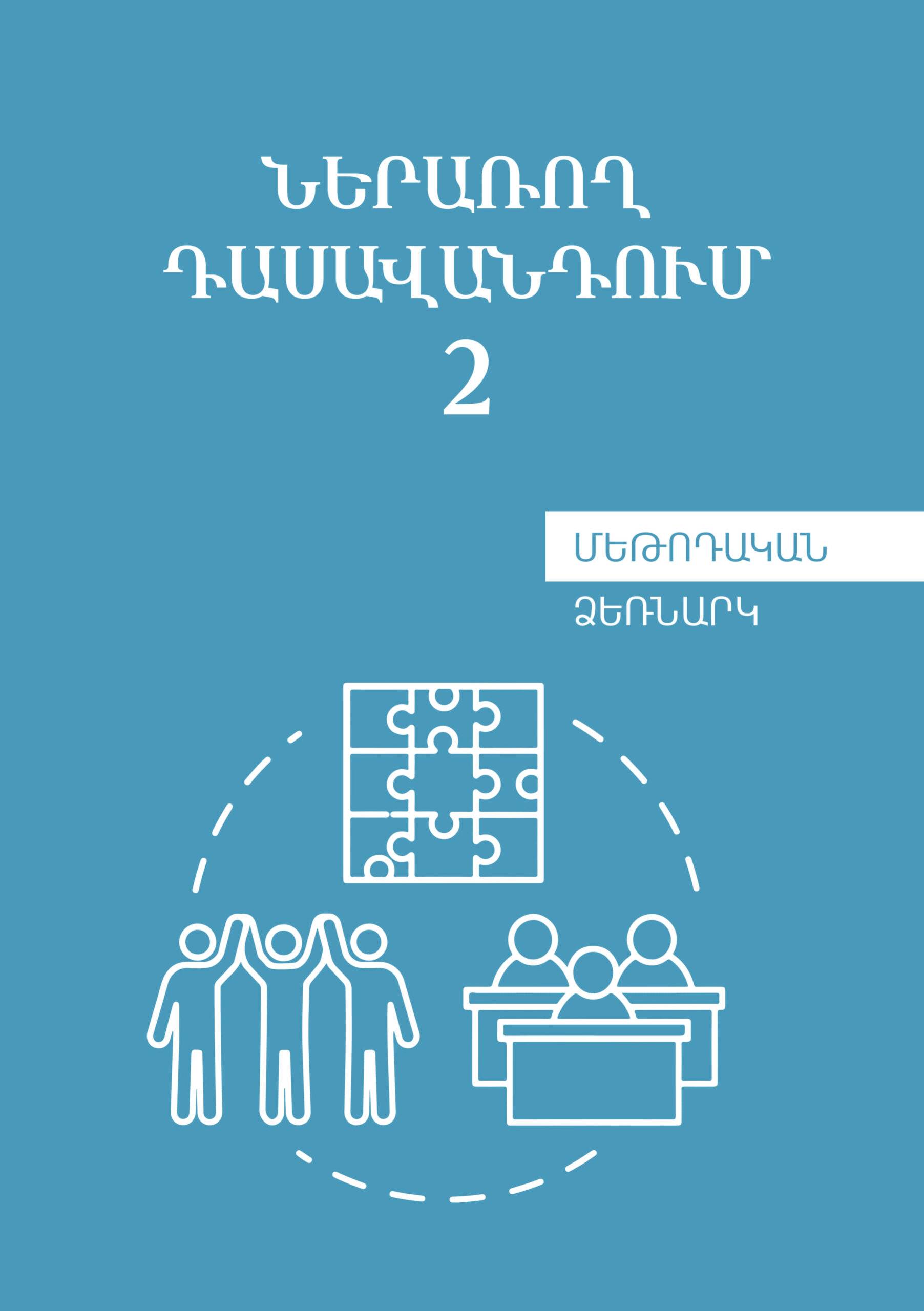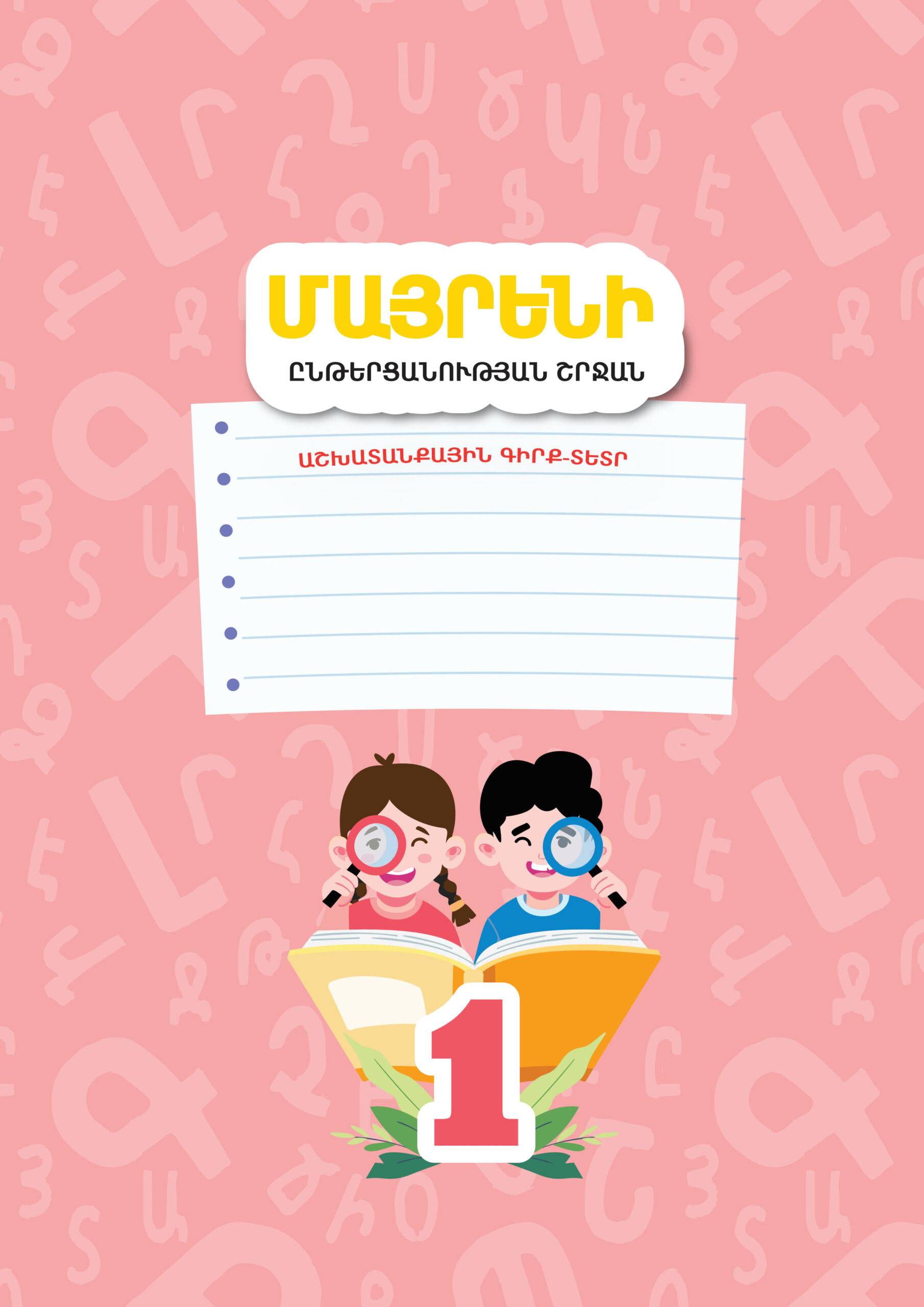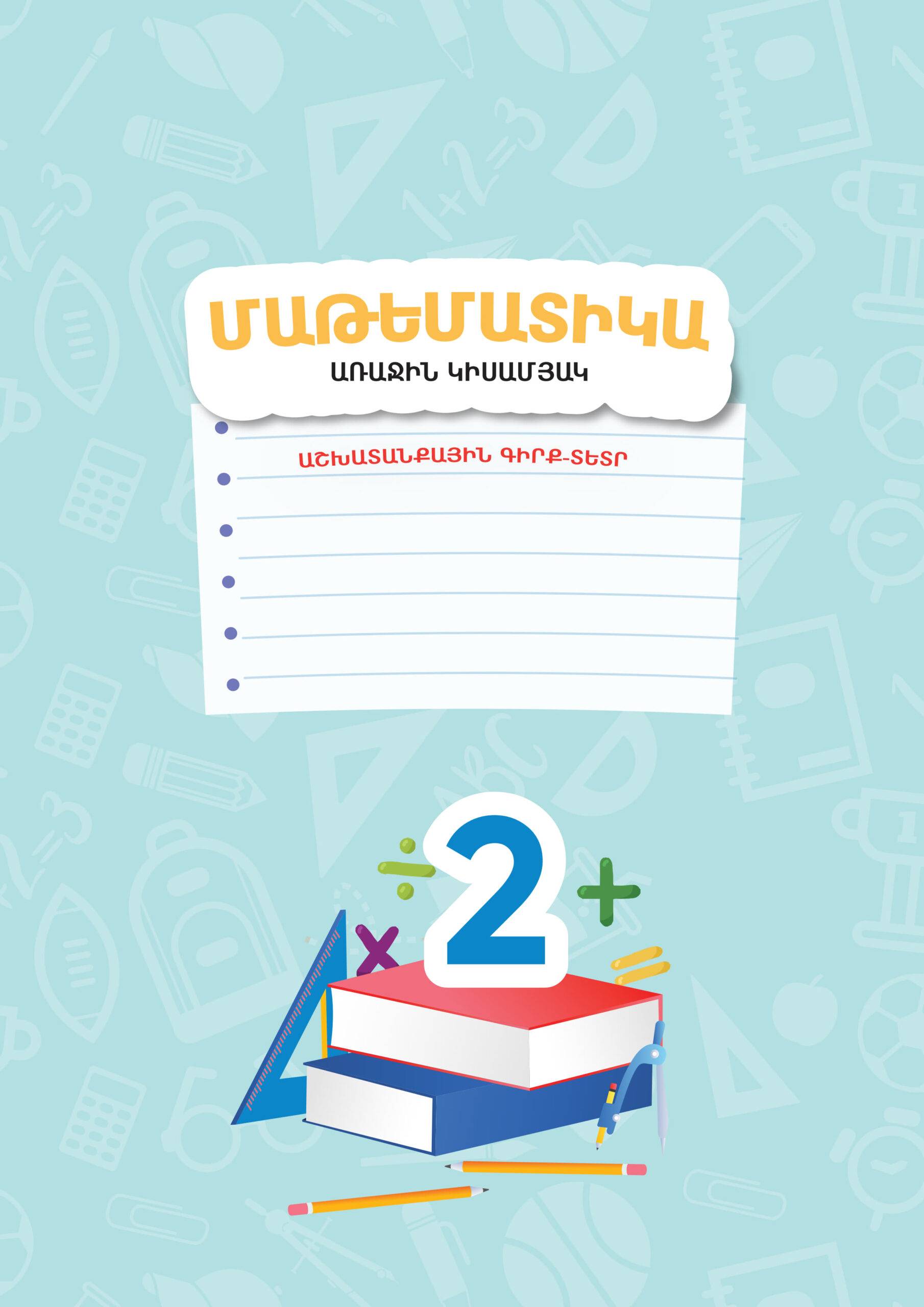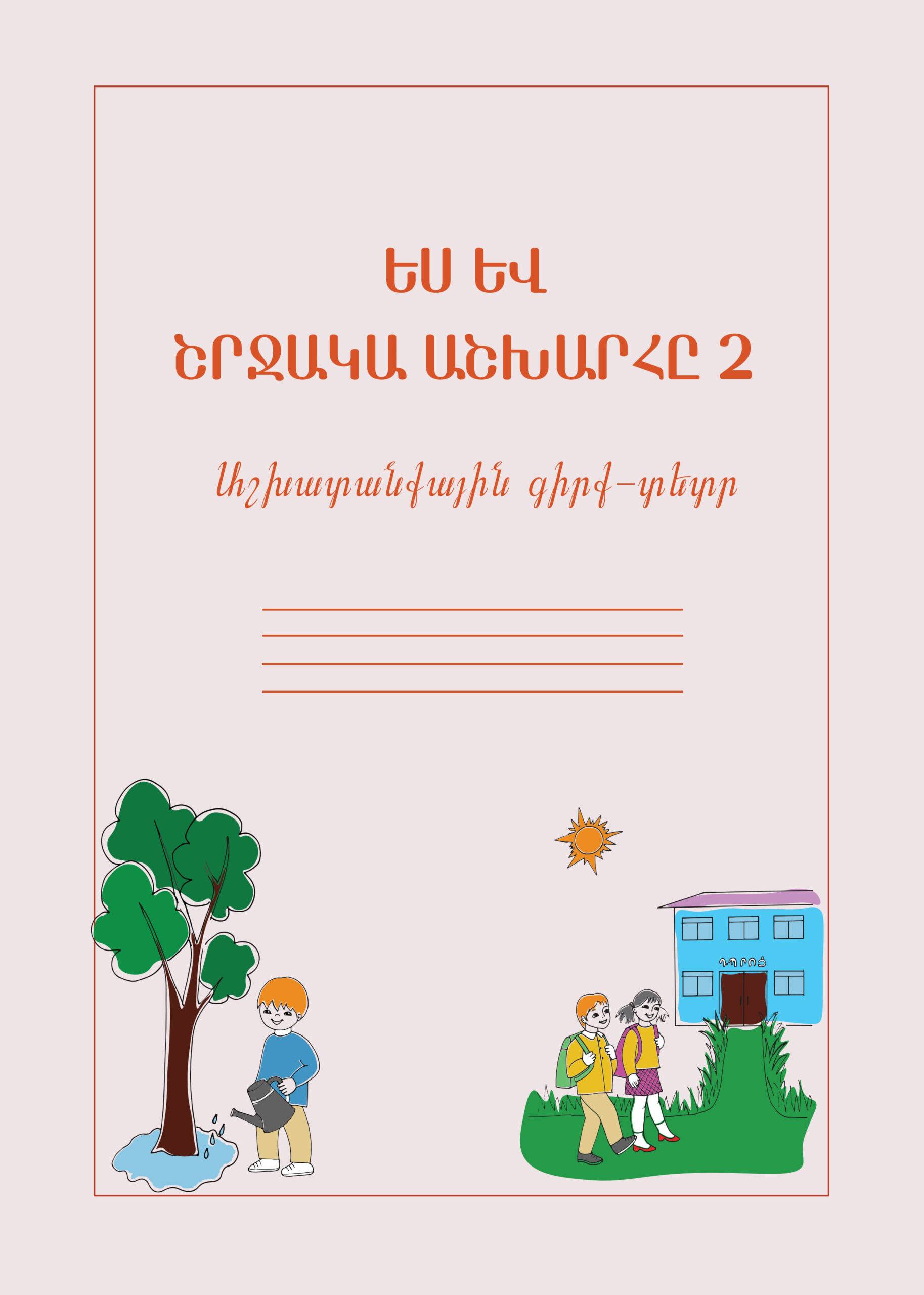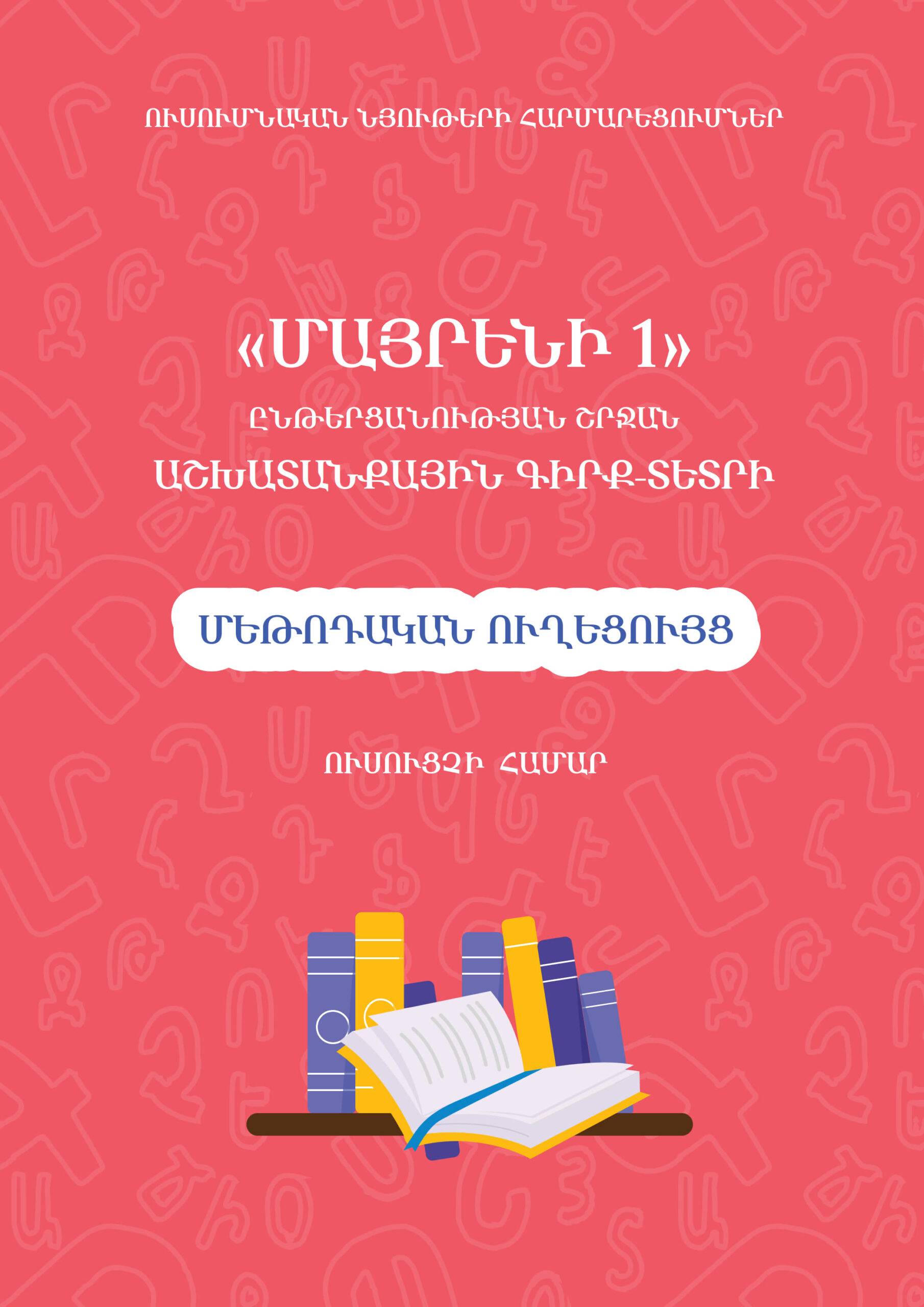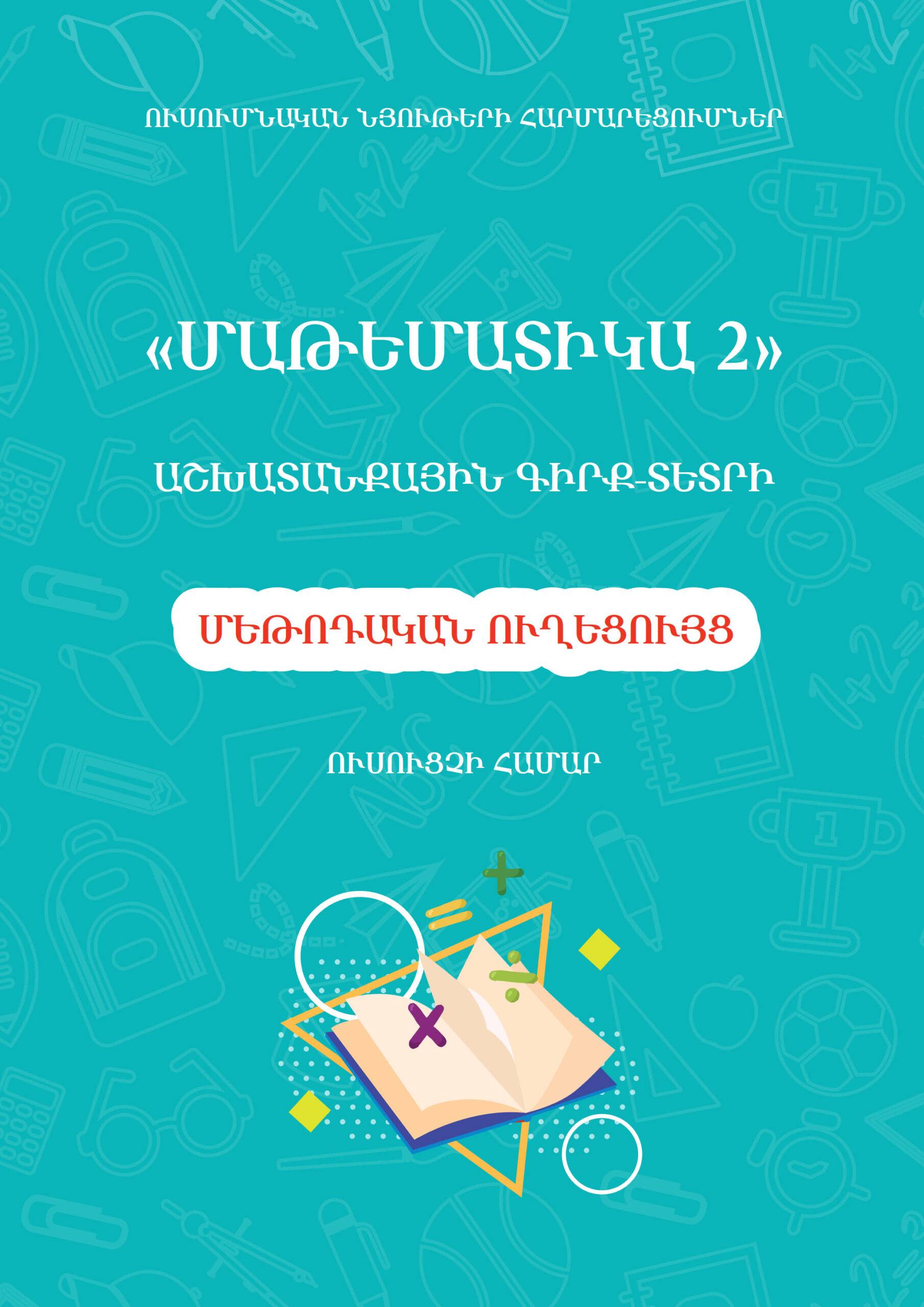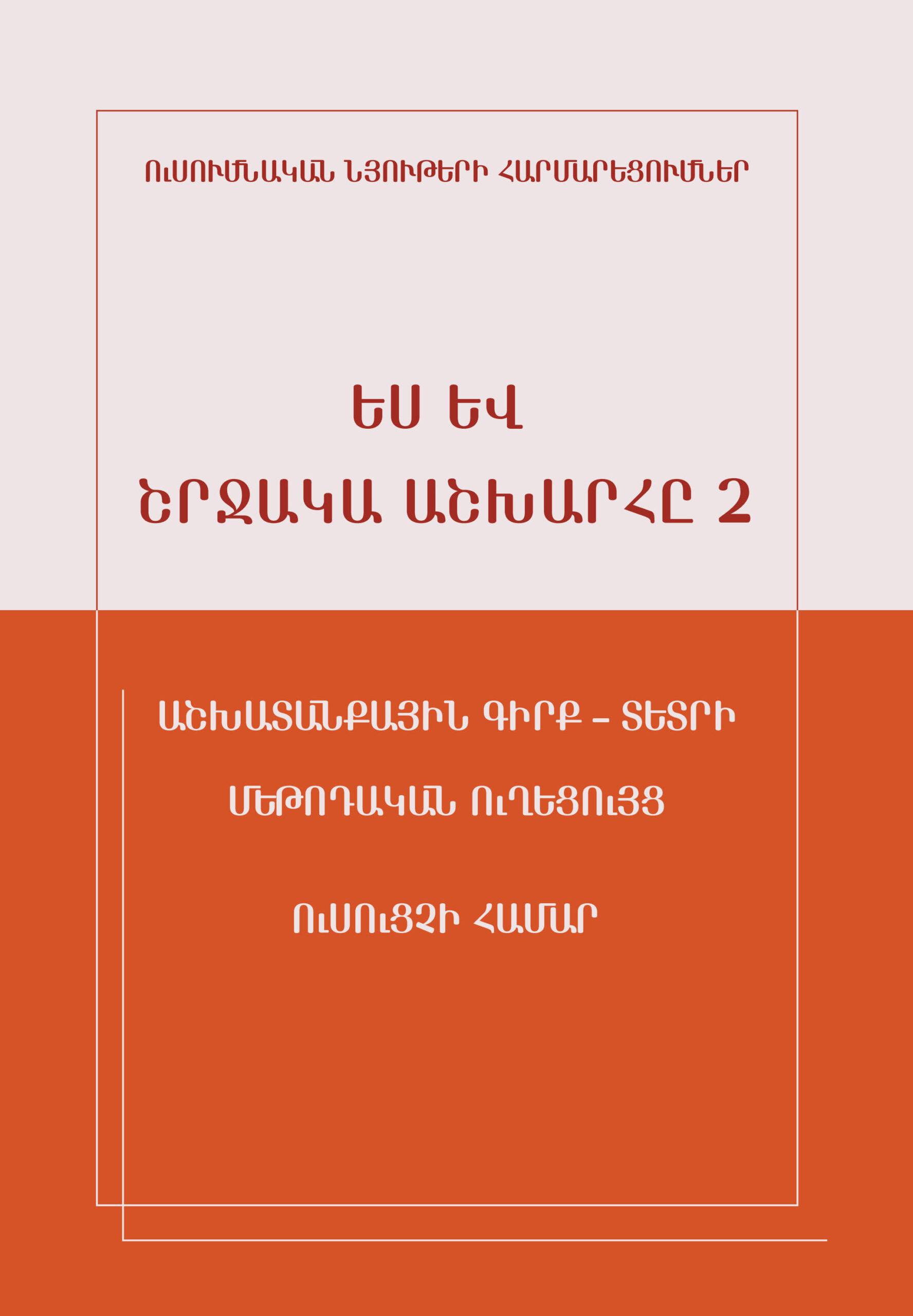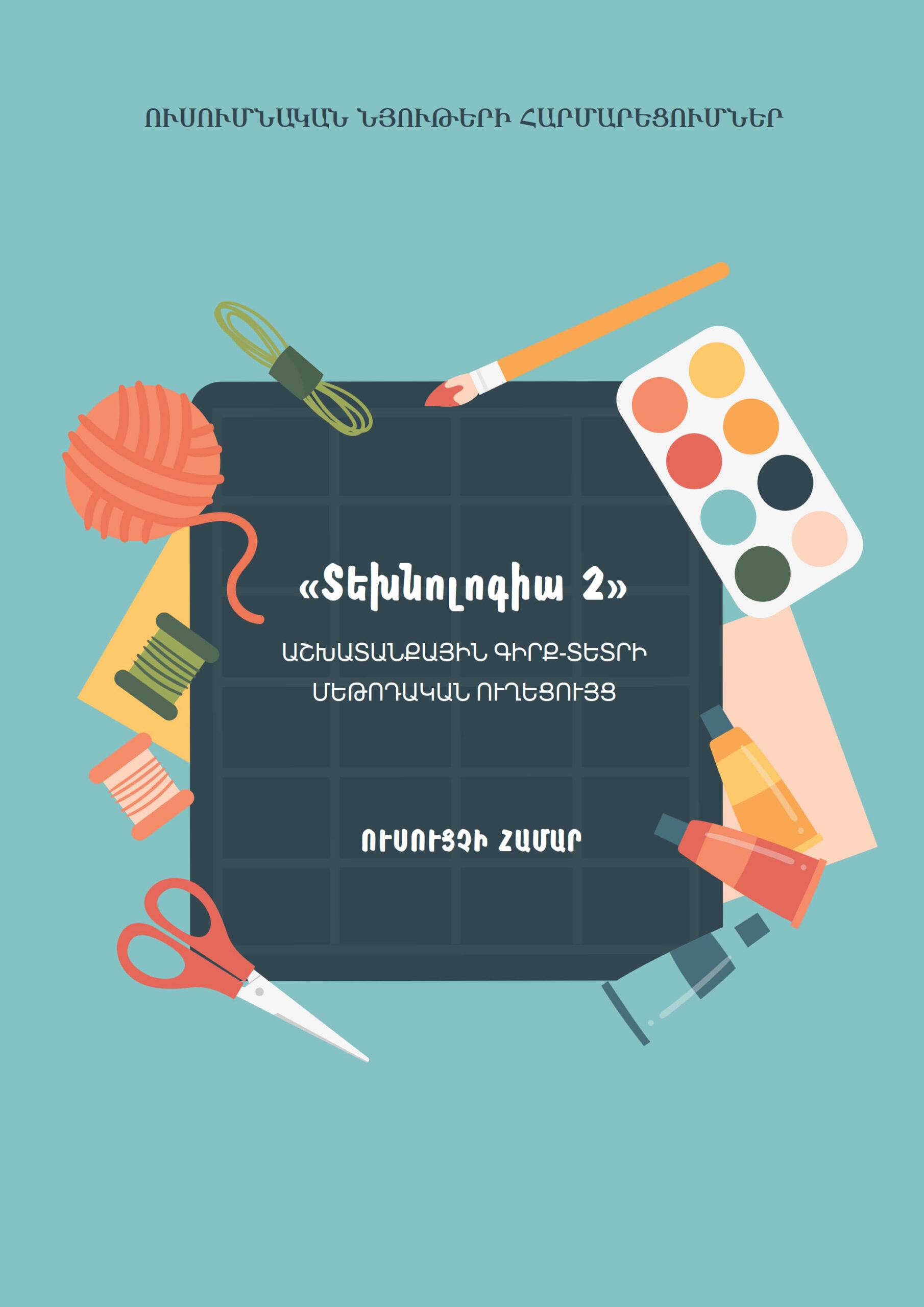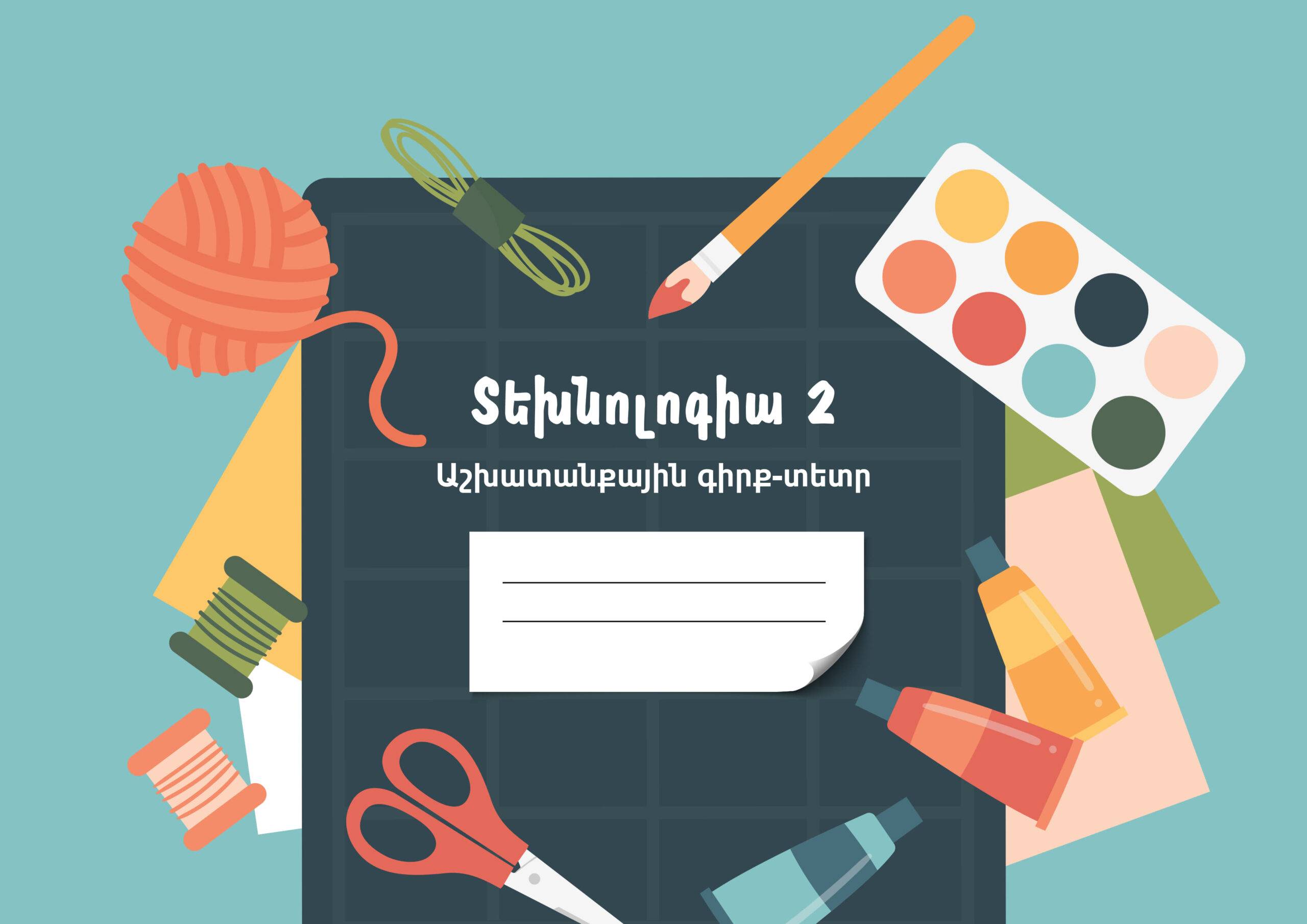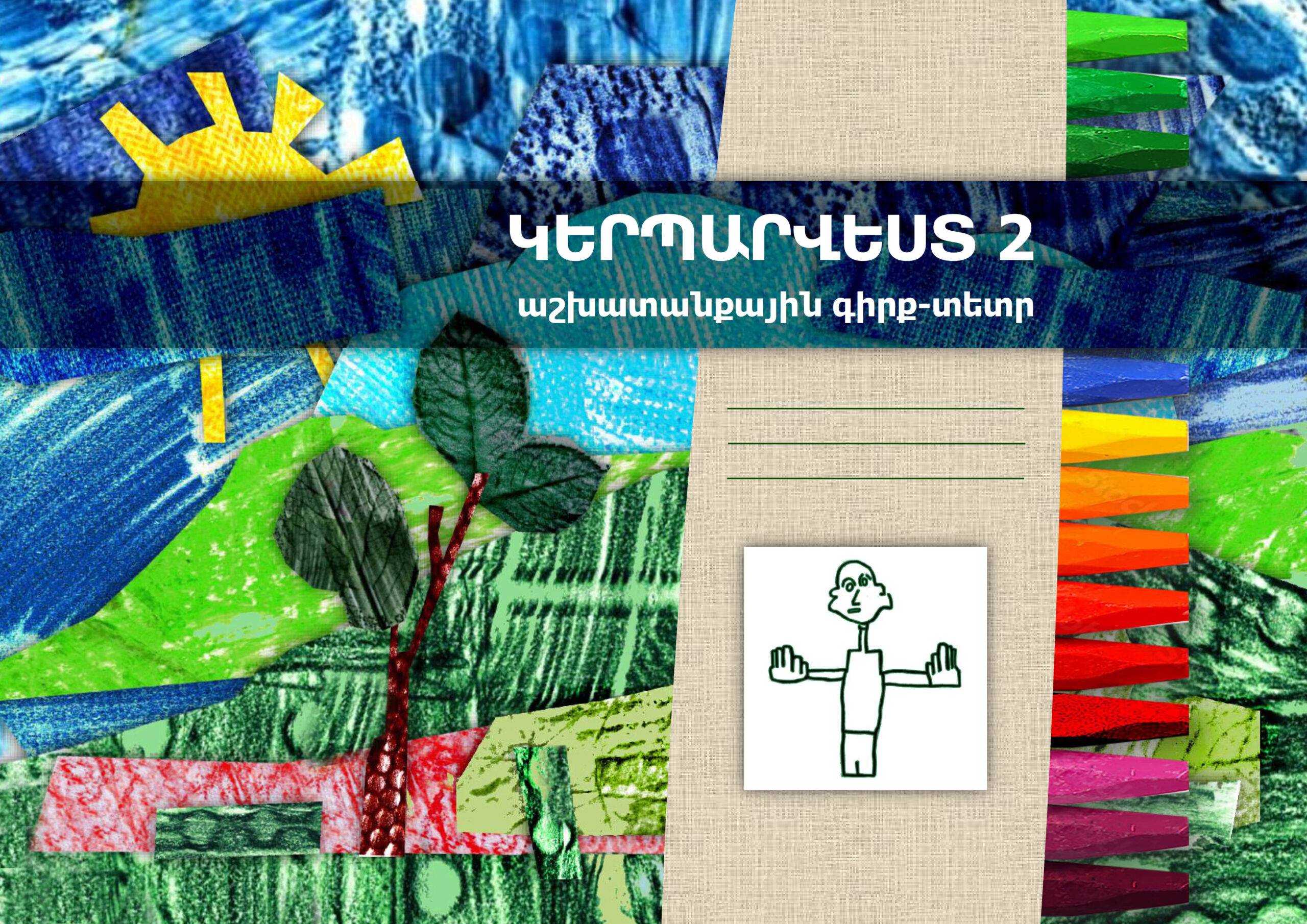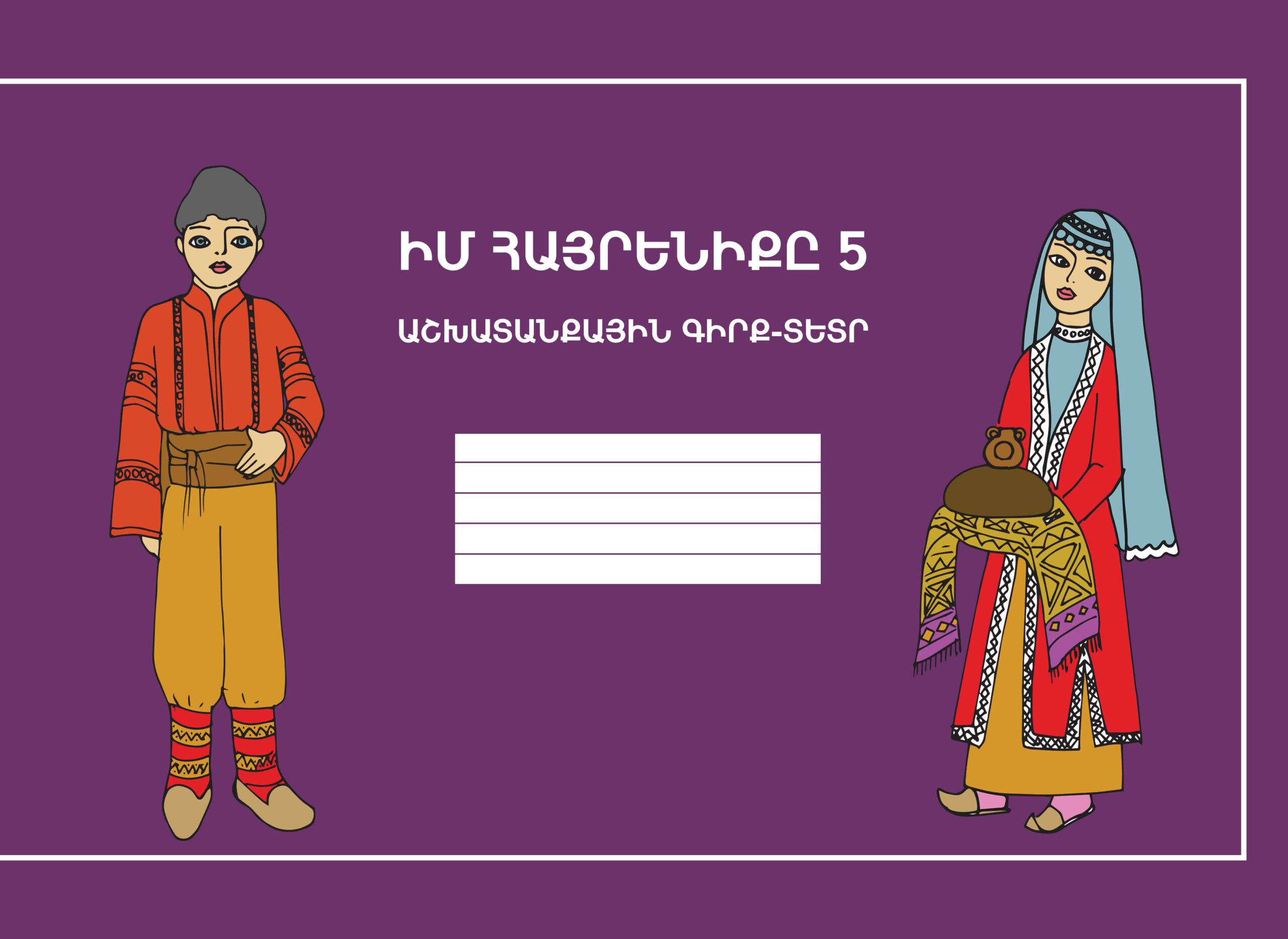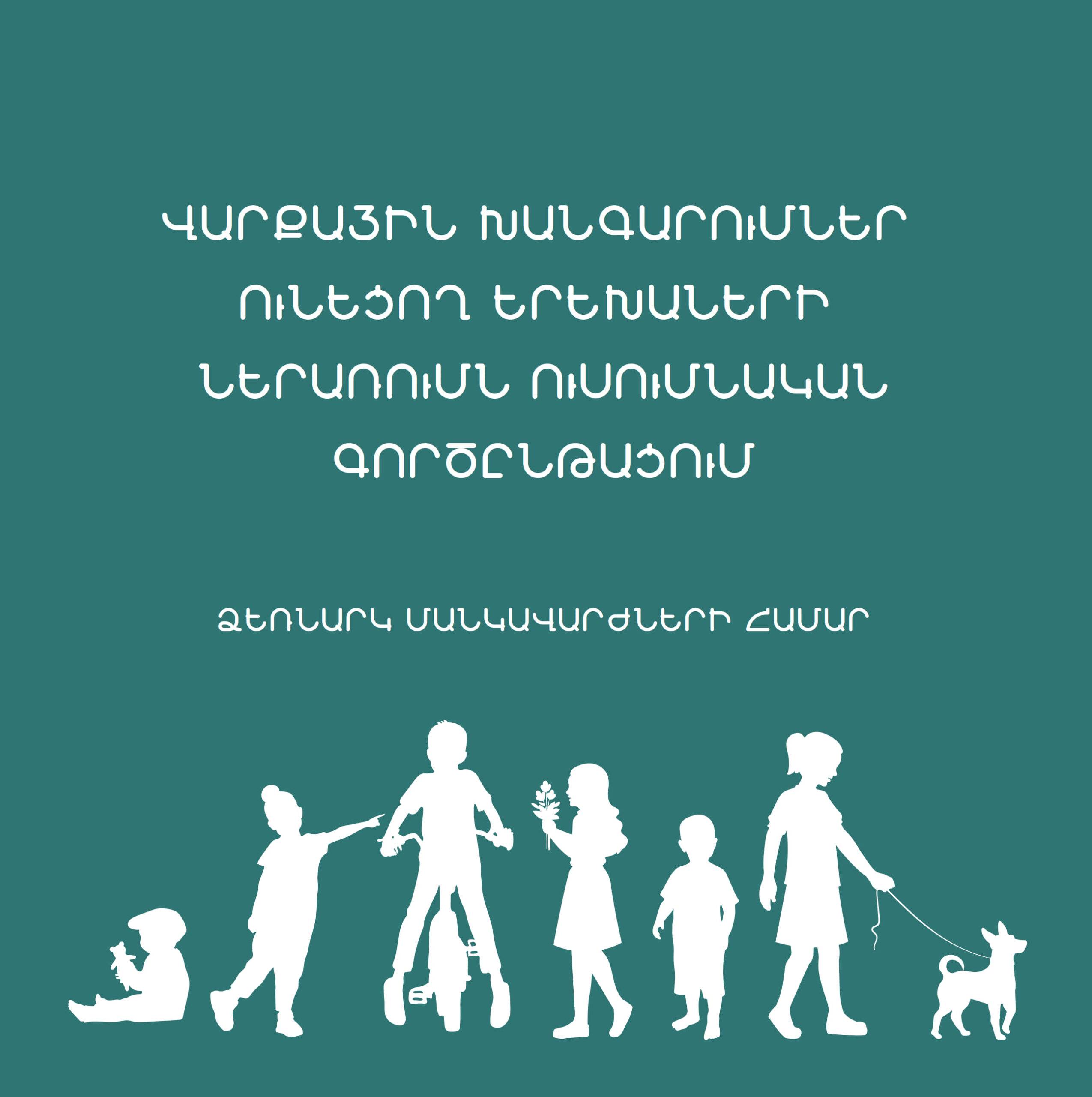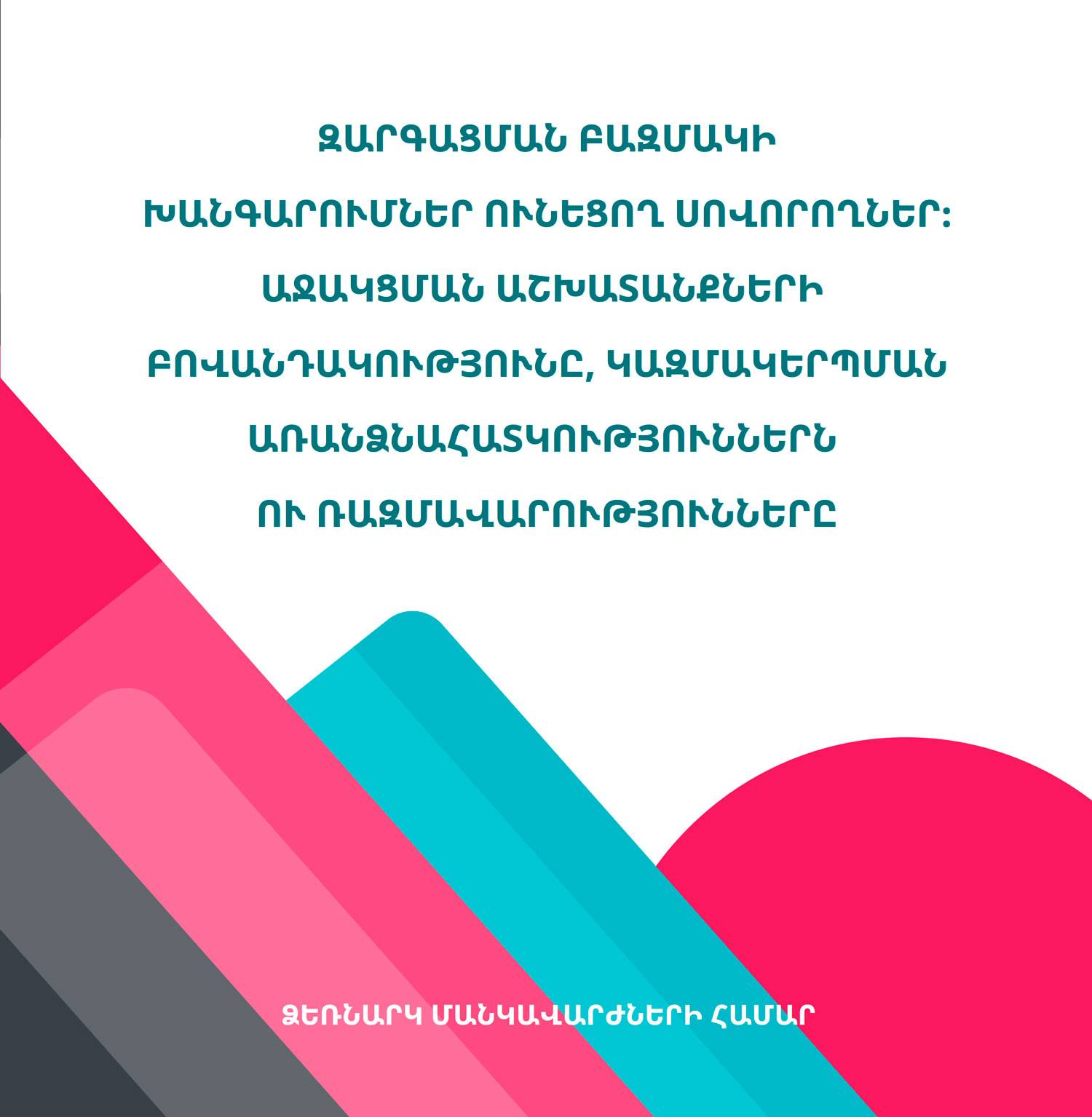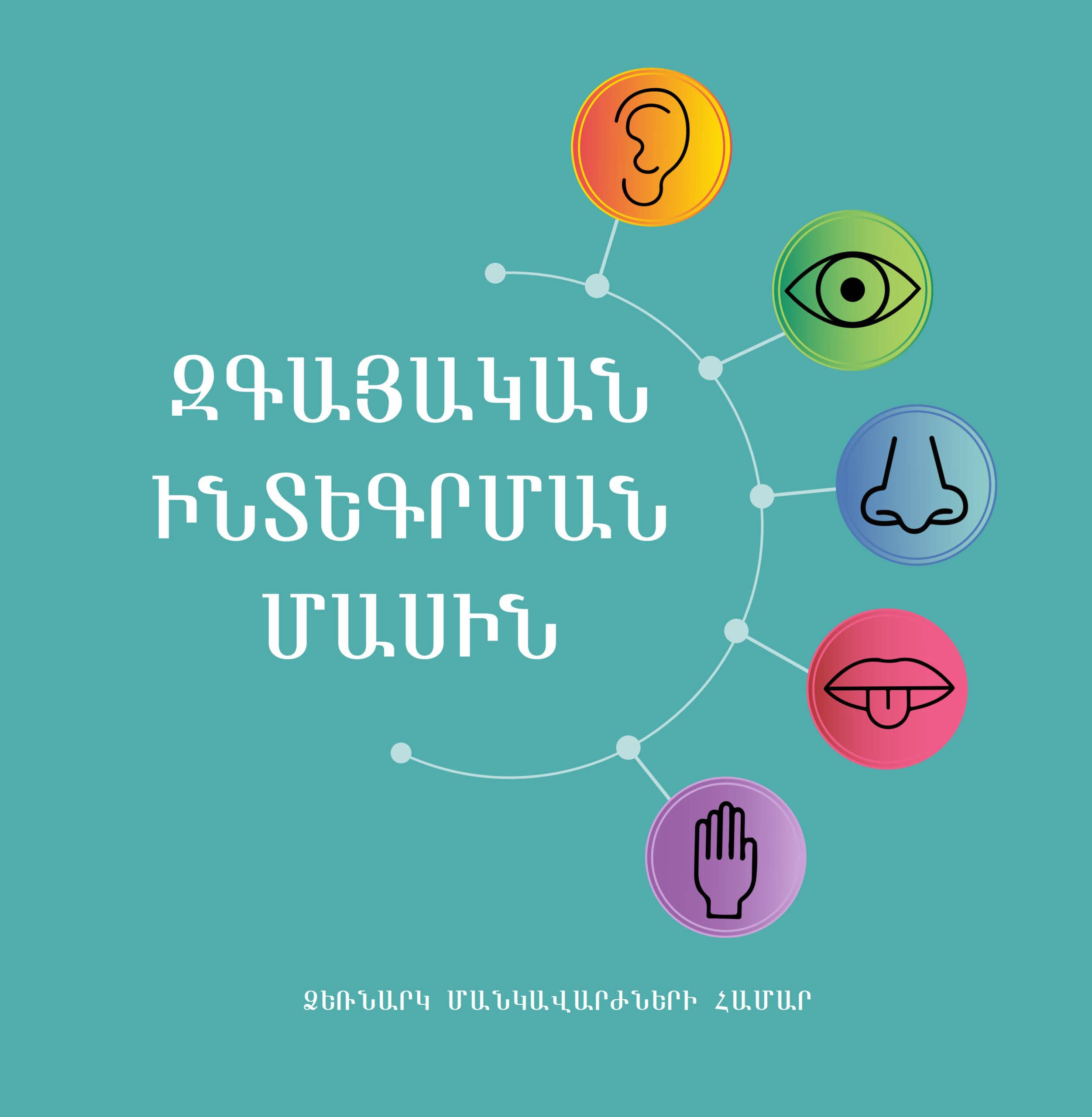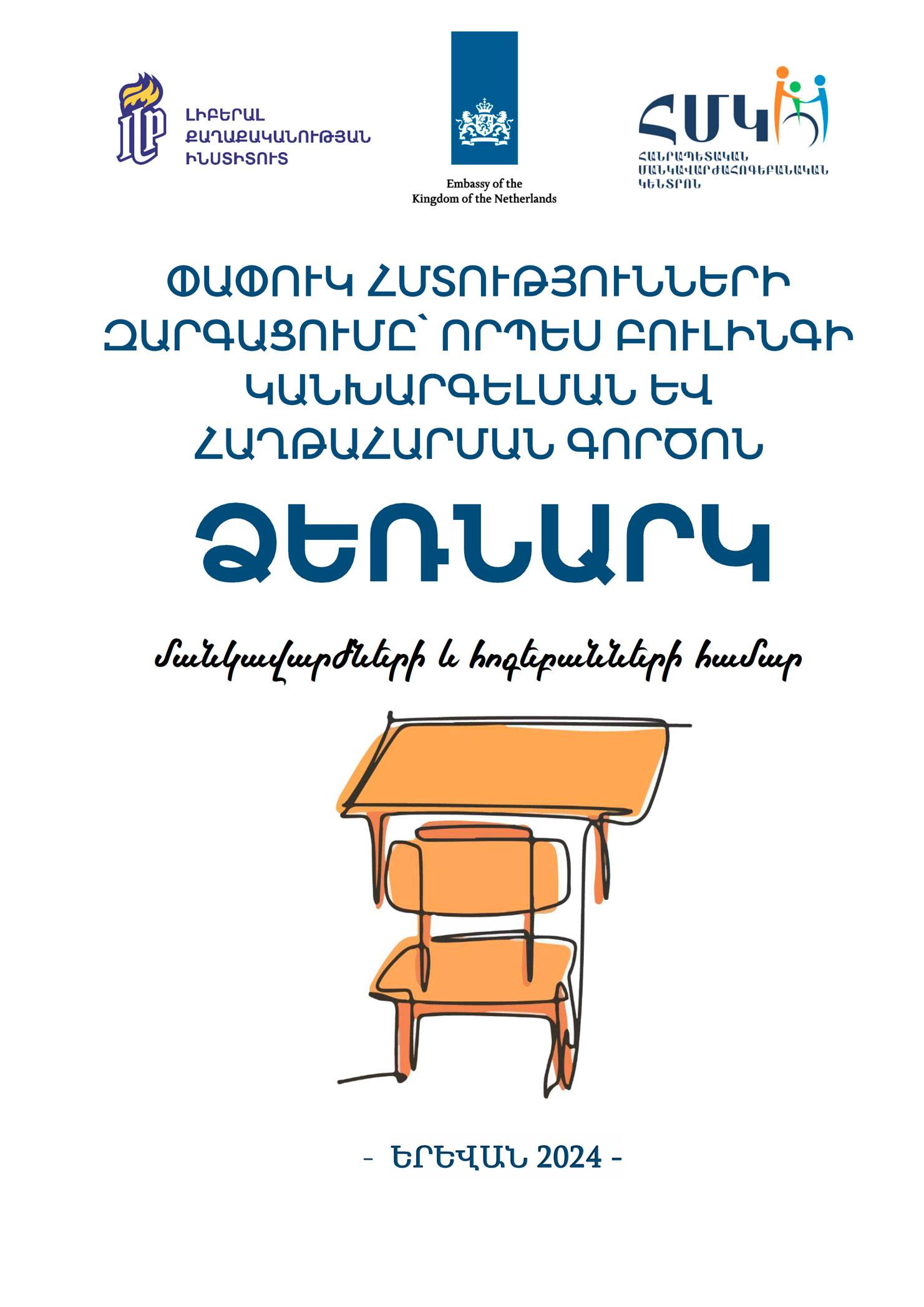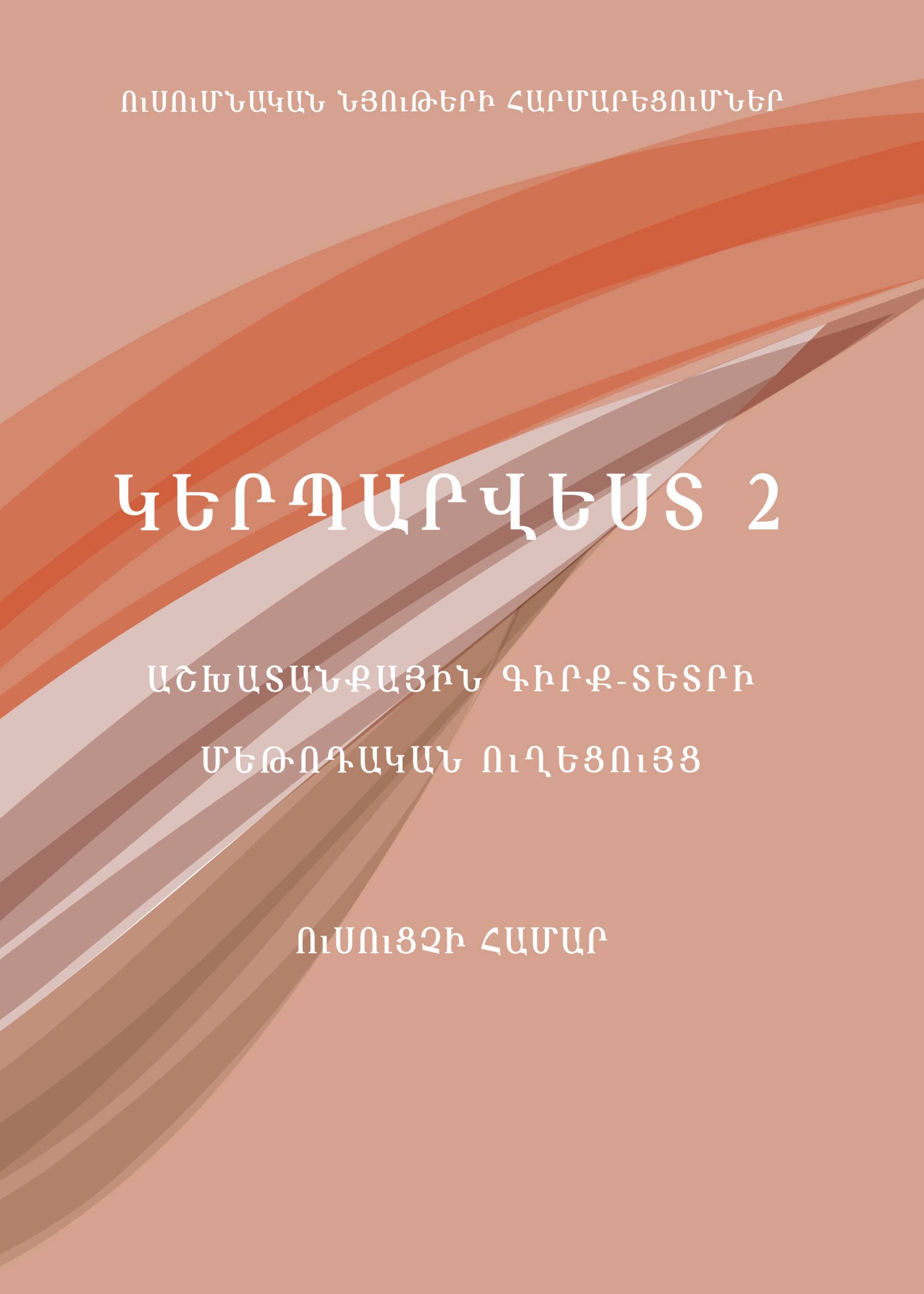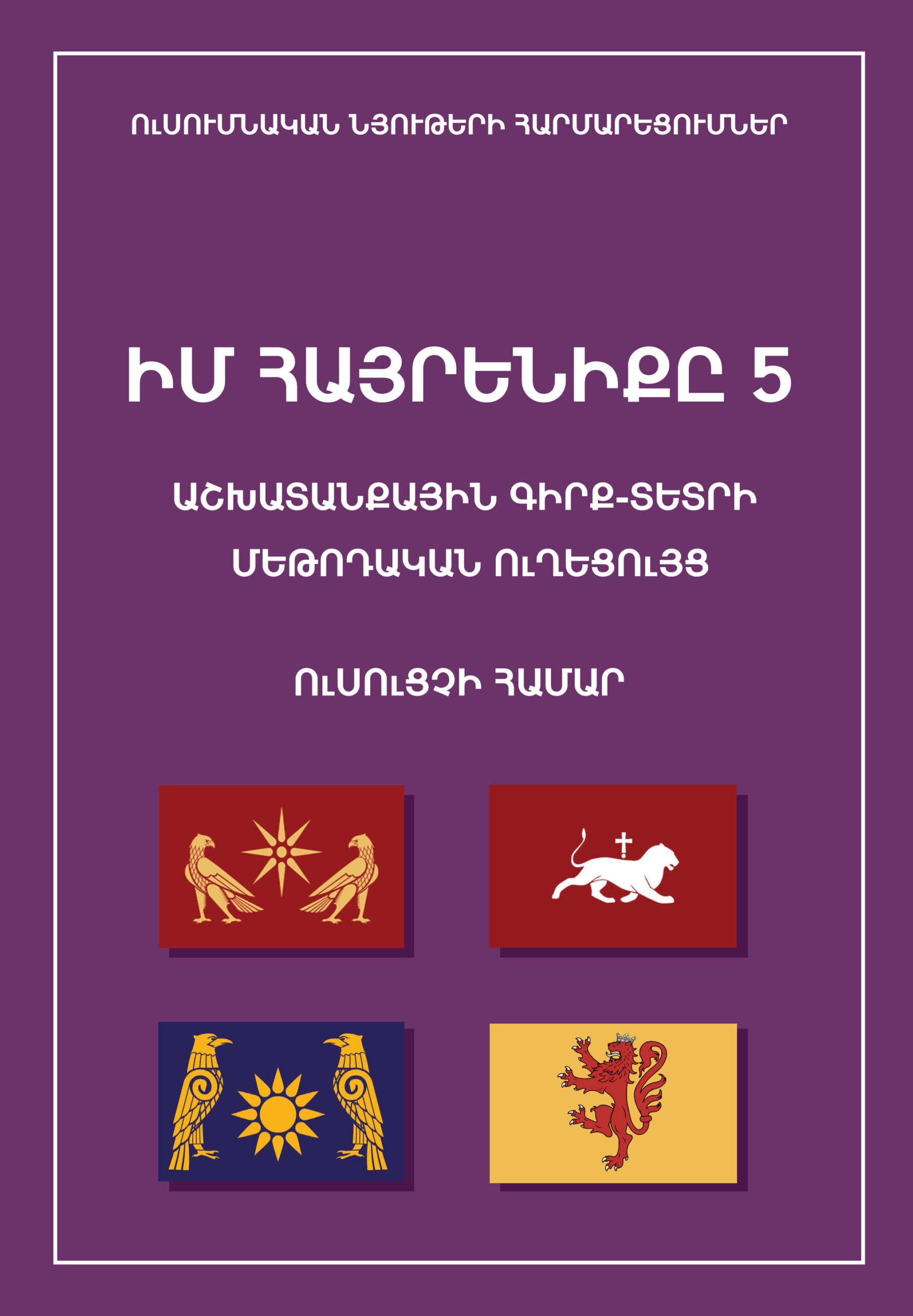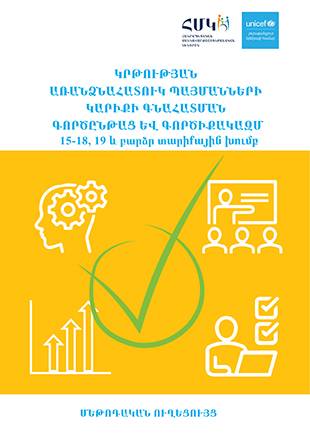”INDIVIDUAL EDUCATIONAL PLAN”
METHODOLOGICAL GUIDELINE
''Individual Educational Plan'' (IEP) is a unique plan to make education easier for students with SEN. The effective individual planning of a learner's learning and pedagogic support services includes the major areas of the learner's educational needs, reasonable accommodations to meet those needs, programmatic accommodations, and types and volumes of support services.
"Individual Educational Plan" presents the way the processes of planning and implementing the teaching and learning process of students with SEN, as well as the processes of developing, reviewing, and evaluating the IEP, based on the "Procedure for providing pedagogical and psychological support services for the organization of education" and ''RA Law "On Public Education".
This manual contains methodical instructions about what is IEP, why it is important, who is involved in the process, and in what sequence of steps it should be implemented to ensure the effectiveness of education.
Also, the guide aims to support teachers, teacher assistants, professionals providing pedagogical and psychological services, and parents to have a practical and realistic dialogue about the needs of the learner, to find creative ways to meet those needs, to carry out the process of developing the IEP more clearly and systematically, resulting in an effective working document.
“INDIVIDUAL EDUCATIONAL AND DEVELOPMENT PLAN”
METHODOLOGICAL GUIDELINE
The guarantee of a child's success in preschool educational programs is the correct organization of the learning course, about which you will find instructions in this manual.
The methodological guideline "INDIVIDUAL EDUCATIONAL AND DEVELOPMENT PLAN" (IEDP) contains information on the process of developing a document that plans the course of individual education and development of a child. The guideline will make it possible to correctly organize and direct the individual course of the child's education and development, with a detailed elaboration of his/her characteristics, actions, and progress, as well as the successive steps aimed at it.
The guideline will help teachers, teacher's assistants, specialists providing pedagogical and psychological services, and parents to conduct a practical and realistic dialogue about the needs of the child, find creative ways to meet these needs, to carry out the process of developing the IEDP more clearly and systematically, resulting in an effective working document.
Additionally, it allows to jointly plan the work of educators and specialists providing pedagogic-psychological support services, to set problems, the goals set for overcoming them, the successive steps to achieve them, and the final results.
"Native Language 1" (READING)
WORKBOOK
"Native Language 1" (READING) WORKBOOK is aimed at easy and pleasant assimilation of education material. The tasks included in it will help first graders overcome the difficulties of reading and writing in the post-alphabetic period through various exercises, interesting and adapted tasks as much as possible, make the processes of developing children's speech, thinking, and analytical skills more interesting and easier.
“NATIVE LANGUAGE 1”
WORKBOOK METHODOLOGICAL GUIDELINE FOR TEACHER
“Native Language 1” (READING) WORKBOOK contains methodological guidelines on the principles of performing tasks, presenting the educational material as accessible as possible, and organizing work with children effectively.
“MATHEMATICS 2" FIRST SEMESTER
WORKBOOK
The tasks included in the workbook are developed to master the basics of digital literacy easily and thoroughly. All tasks are built on the principle of “from simple to complex”, and “from particular to general”, in a strict logical sequence. They are aimed at strengthening and coordinating the acquired knowledge of students about quantitative concepts, geometric images, and bodies, solving problems, and developing skills.
The principle of corrective-developmental orientation of teaching was also taken into account, following the capabilities and practical skills of each student.
The methodical guide of the “MATHEMATICS 2” workbook will help teachers to methodically organize the teaching process.
“MATHEMATICS 2 FIRST SEMESTER”
METHODOLOGICAL GUIDE FOR TEACHER
Methodological guide will guide them to present the learning material more systematically and accessible, taking into account the individual characteristics of each child. A methodological guide for teachers will help teachers to organize the teaching process correctly. It will guide them to present the learning material more systematically and accessible, taking into account the individual characteristics of each child.
“ME AND MY ENVIRONMENT 2”
WORKBOOK
The tasks included in the current workbook “ME AND MY ENVIRONMENT 2” are aimed at revealing the surrounding reality and human relations in the most accessible way. This workbook refers to students’ self-awareness, formation and development of simple social skills, healthy and safe organization of their lifestyle and daily life, giving them the skills to express their own opinion and thus contributing to their inclusion in an independent educational environment as much as possible.
“ME AND MY ENVIRONMENT 2”
workbook methodological guide for the teacher
The methodological guide “ME AND MY ENVIRONMENT 2” is a support for teachers to ensure accessible, inclusive conditions of education and to be guided by new educational realities. It will help them to more easily and effectively organize the learning of students with SEN.
The “TECHNOLOGY 2” workbook is about mastering the basic skills of working and building. The tasks included here are aimed at forming students’ artistic and working principles, revealing and developing their creative abilities, and mastering the means of artistic-technological activities. This workbook will introduce students to various materials and their properties, various tricks and techniques for working with them, as well as allow children to demonstrate independence in performing tasks of various complexity.
“TECHNOLOGY 2”
WORKBOOK METHODOLOGICAL GUIDE FOR TEACHER
The methodological guide of the “TECHNOLOGY 2” workbook was developed to interpret the methodological principles of the tasks included, the specifics of their implementation, and to ensure their effective application as well.
“ART 2” workbook provides a complete understanding of the key concepts of fine art. The tasks refer to the interests and preferences of the students providing them with an opportunity to actively participate in the class, research, and discover. Through the students’ own experience and the use of different materials, they develop children’s spatial concepts and dimensional perception, the ability to see and discover the world in simple geometric images and bodies.
"ART 2"
WORKBOOK METHODOLOGICAL GUIDE FOR TEACHER
The methodological guide of the workbook “ART 2” will help teachers to organize the lesson more flexibly and efficiently. It will help to show such an approach to the educational process, which implies diversity of the teacher’s activity, freedom to approach the process creatively, and encouragement of the manifestation of the individuality of the students by the teacher.
“MY HOMELAND 5” workbook is created on the principle of direct perceptions of patriotism by combining, analyzing, and generalizing them. The content is aimed at imparting basic knowledge of patriotism, forming moral, humanitarian, artistic and work principles.
Students will gain fundamental insights on “big” and “small” homeland, its history, will convey general knowledge about the state, its borders, symbols, structure, language, family, as well as national traditions. Also, they will develop an understanding of national values on the basic principles and will get acquainted with the geographical and geopolitical position of Armenia, the peculiarities of culture and lifestyle, flora and fauna.
“MY HOMELAND 5”
WORKBOOK METHODOLOGICAL GUIDE FOR TEACHER
The methodological guide of the “MY HOMELAND 5” workbook will guide teachers to stimulate students’ interest in this subject, contributing to their acquisition of knowledge based on interdisciplinary connections.
It offers such an approach to the educational process, which implies a diversity of the teacher’s activities, and independence to creatively approach the educational process, encouraging the manifestation of individuality of each child.
Our next publication is about pedagogical-psychological analysis of children’s behavioral disorders and the study of their cause-and-effect relationships.
This manual is aimed at the targeted, systematic, and comprehensive organization and implementation of pedagogical activities with children with behavioral disorders in the process of total inclusion. The manual can be useful to various specialists working with children, teachers, and parents, to provide knowledge about behavioral disorders, their types, theoretical and methodological approaches of psychological, and socio-pedagogical support provided to children, the main directions, principles, and rules of socio-pedagogical work carried out with them.
It also presents games, the use of which in various educational programs and in family will contribute to the prevention of children’s behavioral disorders, overcoming possible difficulties.
RPPC publications 2024 will be available online and in paper versions.
ABOUT SENSORY INTEGRATION
METHODICAL GUIDELINE, HANDBOOK FOR EDUCATORS
By interpreting, combining, and responding to the various information received from the senses, the brain controls the reactions of our body, our emotions, and our behavior.
As a result of sensory integration, a person can engage in everyday activities, “make sense” of the surrounding world, and interact effectively with it. The manual contains the outline of sensory integration, its importance, the difficulties that appear as a result of its disturbance, as well as the mechanisms, ways, and professional approaches to counteract them.
It will help teachers, specialists of TPPSC’s, and parents of children with various disabilities to recognize the child’s problem and help to overcome it including it in daily activities and the educational process.
When working with students with multiple developmental disabilities, it is important to carefully organize their learning process, so that they can use their full potential.
So, this manual aims to provide methodological support to specialists in mainstream schools regarding the possible forms of teaching and development of students with multiple developmental disorders (means, methods, educational environment), as well as the formation of students’ communication abilities, independence, abilities to overcome obstacles, etc.
“Inclusive education 2”
Manual for Teachers
The manual “INCLUSIVE EDUCATION 2” is aimed at providing video-methodical support to school teachers and teacher’s assistants in the process of introducing and using effective teaching mechanisms and methods. It is the continuation of the guideline with the same name published in 2023.
This interesting manual is aimed at providing video-methodical support to school teachers and teacher’s assistants in the process of introducing and using effective teaching mechanisms and methods. It is the continuation of the guideline with the same name published in 2023.
Note, the manual also includes sections on rubrics and lectures which provide information on effective ways to deliver new material, objectivity in the assessment process, and providing various feedbacks.
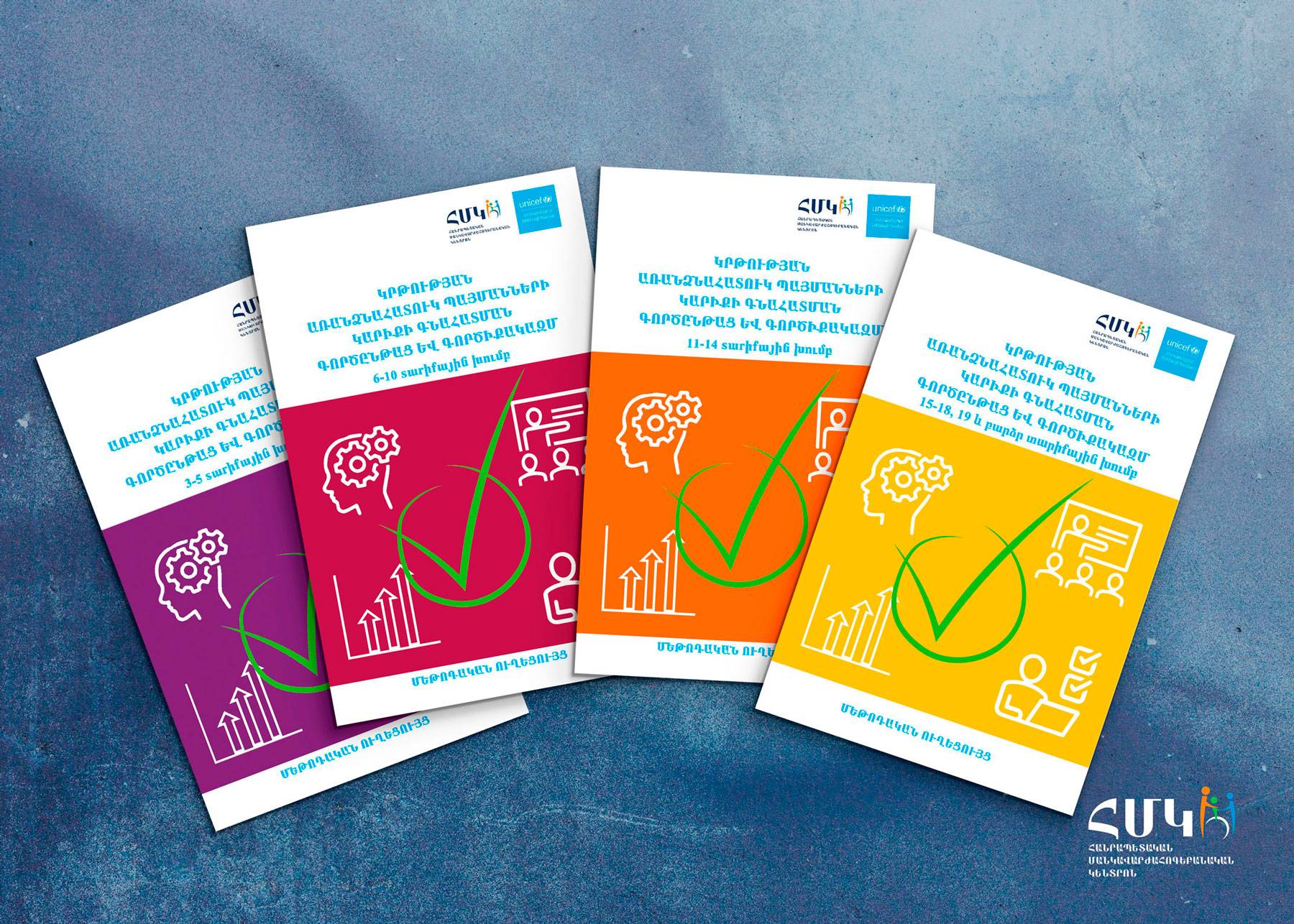
"ASSESSMENT PROCESS AND TOOLKIT FOR THE NEED FOR SPECIAL EDUCATIONAL CONDITIONS"
Methodological guidelines for the following age groups: 3-5, 6-10, 11-14, 15-18, 19 and older
So, based on humanistic principles, global values, and accessibility standards, the series of methodological guidelines "ASSESSMENT PROCESS AND TOOLKIT FOR THE NEED FOR SPECIAL EDUCATIONAL CONDITIONS" is aimed at providing quality education, which includes the tools used in the assessment of SEN and SEDN of different age groups with all their components: assessment bulletins, toolkits (tasks, workbooks, stimulating materials), standards.
The guidelines will enable pedagogues of educational establishments, specialists of TPPSCs' in particular special pedagogues, social pedagogues, and psychologists involved in the process of children's assessment, to know in detail the procedures, toolkits, and methodology of their application for children of different age groups.

